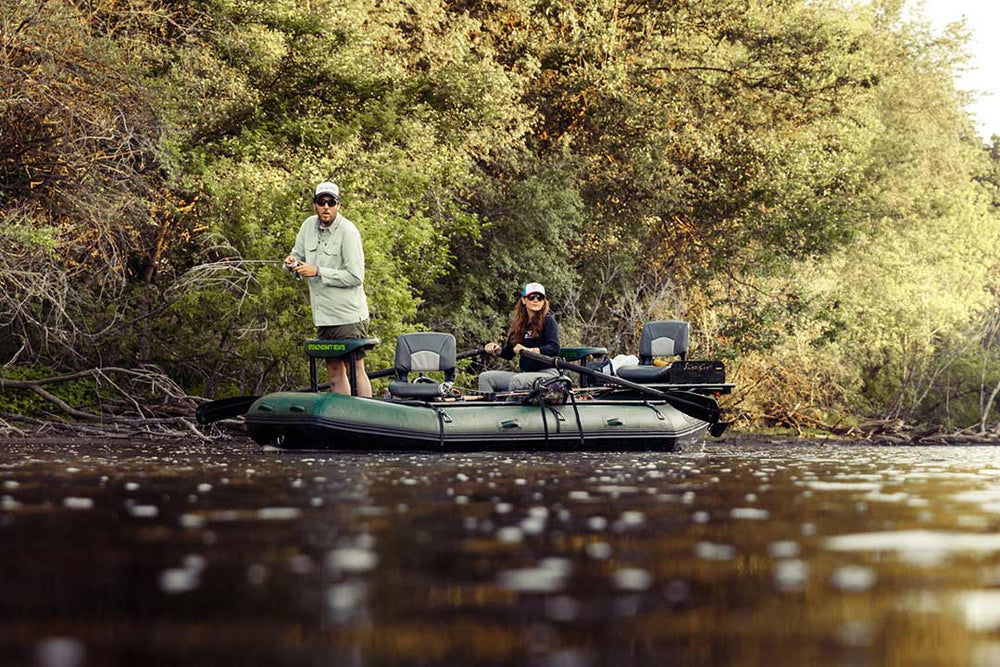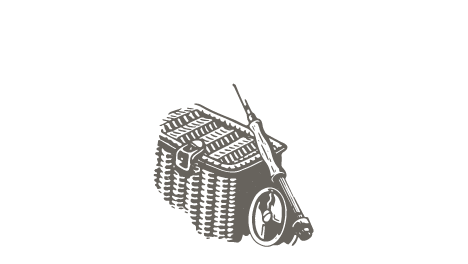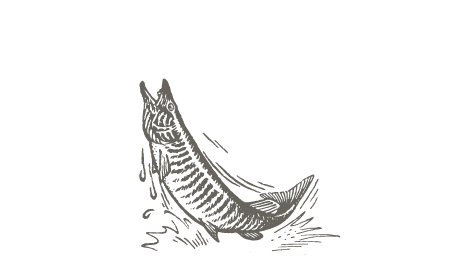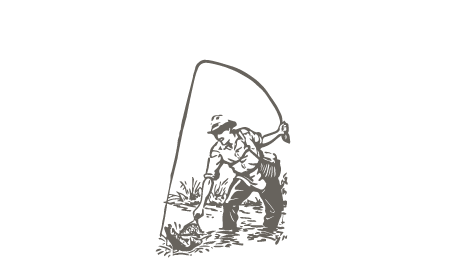More Than Just Fishing
It was a frigid night in mid-February. Gusting winds pushing sideways snow across the northern reaches of musky country. Several close fishing friends and I hunkered over a faded pine table with one distinctly wobbly leg and several heavy glass mugs scattered across the top, doing our best to conjure profound insights on topics ranging from fly size and color all the way to riverside bathroom site selection. You know the scene. You’ve probably been there. Hanging out with your fishing buddies doing anything you can to pass the time until the temperatures rise and you’re back on the water chasing fish and living the dream.
At one point the conversation arced towards conservation and the future of the resource. After a few of us offered our own best summation of the state of things, the crew nodding in silent consensus, a quiet formed in the air. It was broken by some sharp wisdom from across the table.
“Here’s the deal. We go out fishing every day and reap the benefits of other peoples’ work, but eventually, instead of sitting on the sidelines we’re all gonna have to pony up and get to work protecting this thing.”
The statement seemed to puncture each of us at the table. Like the sentence breathed into reality what all of us had known for a long time: that a life spent on the lakes and rivers eventually leads us to a simple conclusion. At some point, it’s time to step into an active role in giving back to the resource. To put our feet and hands where only our mouths had been previously.
That conversation pushed our group to start taking a more active role in conservation and stewardship efforts impacting our fishery. We were surprised at how easy it was to connect to important projects going on right under our noses. Just a little effort and the decision to show up with rubber boots and work gloves was all it took to start doing our part and help make a positive impact on the health of the ecosystems we spend so much time enjoying.
Back in the mid-seventies a story you may have heard of popped onto the fly fishing scene. In it, the narrator expounds that “eventually all things merge into one, and a river runs through it”. Oft quoted as it is, the sentiment reflects well the interconnectedness of the following list of organizations and their connection to musky conservation. The effects of habitat and conservation efforts, like water itself, flow downhill, and healthy aquatic ecosystems are tough to find downstream if they don’t exist upstream. Because of this, what you’ll find below is somewhat of a stair-step approach back from wherever you fish for muskies to the locations where that water starts its journey (oftentimes springs, creeks, and freestone habitats). At each distinct level, there is likely an organization in your area with boots already on the ground working to improve and sustain the resource. They could use your help.
Muskies, Inc.
While Muskies, Inc. tends to have a high percentage of traditional gear musky anglers, the organization is actively looking for more participation and voice from musky fly anglers. Local chapters across the country either have or are adding fly divisions and the bottom line is that the mission of the organization is specifically to conserve, protect and restore North America’s musky fisheries through targeted, local area research on habitat preservation, water quality, water management policies, and the development/maintaining of self-sustaining fish populations. There’s almost certainly a chapter relatively close to wherever you are (there are 50 independent chapters across the US), and the organization is a national voice in the protection of muskies. Becoming a member of your local chapter is easy to do, and in most cases, the meetings are open for all members to attend. Membership and meeting attendance are an easy way to plug into musky-specific protection, stocking, and conservation efforts in your own backyard. It’s also a great way to form new friendships and community in your fishery, and to get the details on any upcoming service projects and workdays.
Smallmouth Alliance
We all know that a river or lake that offers up healthy smallmouth bass populations to anglers has a tendency to be great habitat for our toothy quarry as well. There are several smallmouth alliances around the country (found typically at the state or regional level), and a quick google search can connect you to the closest organization to you. Many of these alliances exist right in the heart of musky country, and many have active, independent groups working on regionally specific conservation projects. Due to their often local-level design, smallmouth bass alliances are often at the forefront of projects to improve area-specific structure and habitat, have compelling catch and release campaigns, and work to improve and sustain smallmouth bass fisheries around the country. For example, the Wisconsin Smallmouth Alliance has an active conservation/education component and works collaboratively with the state department of natural resources to improve and protect habitat. In many cases, improvement to SMB habitat and health has adjacent improvements to the quality of the musky fishery.
Trout Unlimited
Trout Unlimited is undeniably an organization that seeks to advocate for and improve the health of cold, clean water across the country. That same cold, clean water eventually dumps into the rivers and lakes that we fish for muskies. It’s no secret that the tributaries and confluences of these healthy, cold waters are a terrific spot to find baitfish and the predators hunting those baitfish. Again, when it comes to conservation and fish health, each strand connects to the other. One of the significant factors creating healthy musky fisheries is the amount of forage biomass available to the fish, and having cold, clean water spilling into your fishery is a great way to support that biomass.
There are chapters of Trout Unlimited located all over the country, and most have robust work day programs. These work days are a great opportunity to hang out with your friends, talk fishing, do some important conservation work, and ultimately have a lot of fun!
To illustrate this point, shortly after arriving for my first-ever work day I was handed a gas-powered leaf blower and informed that my job throughout the day would be to rip the leafblower at the base of a large bonfire. I mean, come on… How much more fun does conservation work get than that?
Local DNR Biologist
No matter where you live in musky country, you’re likely a few clicks or a phone call away from your local fisheries biologist. These biologists are passionate, informed professionals in subjects that you likely care a lot about as musky anglers. States from Wisconsin and Minnesota all the way to Maine (and basically every musky state in between or beyond) have thorough contact information online, and these biologists can be an excellent resource to become a more informed angler and find ways to participate in conservation efforts. They’re a tremendous resource for answering questions you might have and can point you in the right direction.
Photo Credit: Josh “BamBam” Smeltzer






Leave a comment